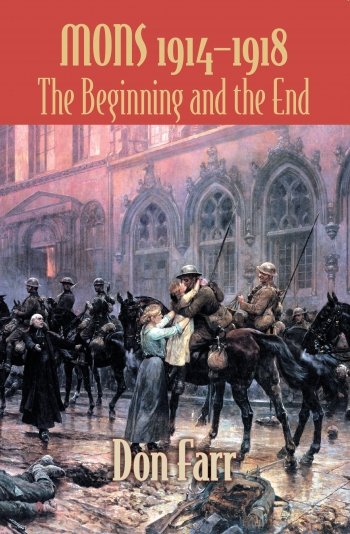-
Załączniki bezpieczeństwa
Załczniki do produktuZałączniki dotyczące bezpieczeństwa produktu zawierają informacje o opakowaniu produktu i mogą dostarczać kluczowych informacji dotyczących bezpieczeństwa konkretnego produktu
-
Informacje o producencie
Informacje o producencieInformacje dotyczące produktu obejmują adres i powiązane dane producenta produktu.HELION
-
Osoba odpowiedzialna w UE
Osoba odpowiedzialna w UEPodmiot gospodarczy z siedzibą w UE zapewniający zgodność produktu z wymaganymi przepisami.
It was close to the small southern Belgian town of Mons that the shooting war began for the British Expeditionary Force in August 1914. It was close to the same town that it ended for them over fifteen hundred days later. Neither the BEF nor the German Army planned or foresaw that first confrontation at Mons. It came about through blind chance and a series of miscalculations, born of ignorance on both sides, of precisely where and how strong their adversaries were. Although the Battle of Mons showed the BEF to be more than a match for the Germans, it was forced into the long Retreat from Mons as the growing German preponderance became apparent. Mons only briefly played host to the BEF in August 1914. Nevertheless the town acquired a special place in the hearts and minds of the BEF and the British people, enhanced for many by the enduring stories of the Angel of Mons. Although the Western Front became mired in static trench warfare many miles from Mons, there was always a resolve on the part of the BEF that one day they would fight their way back there and liberate the town. This was finally achieved on the last night of the war, only hours before the Armistice ended it. The year 2008 sees the 90th anniversary of the liberation of Mons. To mark this milestone the book describes the arrival of the BEF in Mons in 1914, the Battle of Mons itself, the Retreat from Mons, the Battle of Le Cateau, and the background to the Angel of Mons stories. It also describes events on the Western Front through to the German spring offensives of 1918. During more than four years of German occupation the people of Mons suffered privation, near starvation, deportations and executions. These are described, drawing heavily on unpublished local sources. The Allied 100 Days Campaign is then outlined culminating in the liberation of the town. The last chapter brings the story of Mons and of the main wartime players up to date. Finally two appendices describe the military and political developments which brought the BEF to Mons on that fateful weekend in August 1914.








